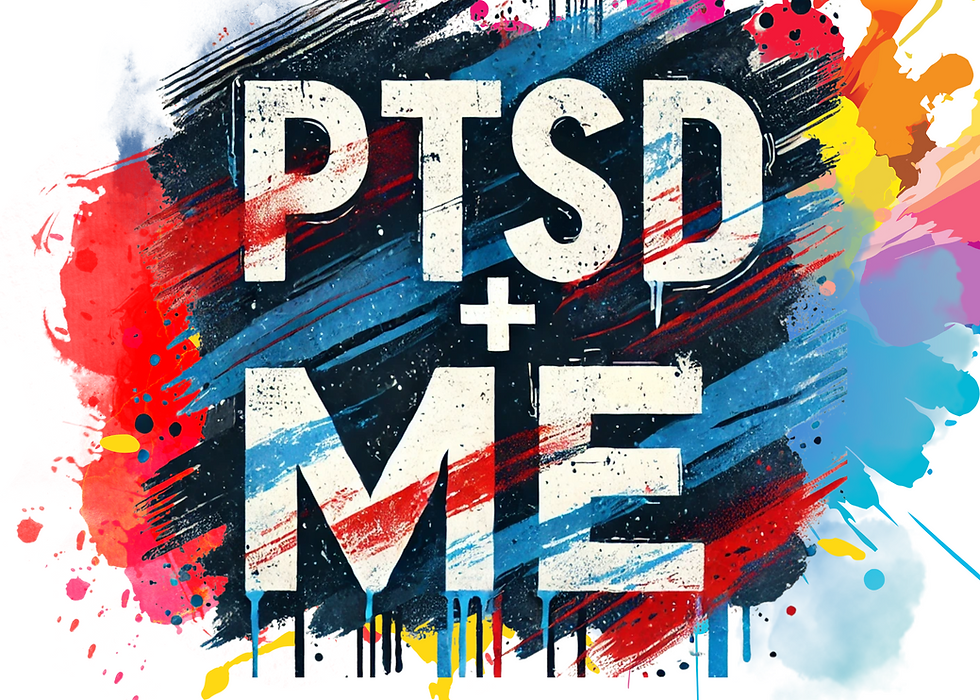Trespasses and Trauma
- Troy Rienstra

- Apr 2, 2025
- 3 min read
"Forgive us our trespasses, as we forgive those who trespass against us. And lead us not into temptation but deliver us from evil."
These ancient words—repeated across centuries, cultures, and traditions—carry a depth that goes beyond spiritual recitation. What if the word trespasses in this prayer isn’t just a moral misstep, but a reflection of human harm, personal violation, and psychological trauma?
This is not a theological argument. It’s an exploration. One that considers how human pain—what modern clinicians call trauma—was encoded into sacred language long before the language of neuroscience emerged.
The Greek word used in early biblical texts for "trespasses" is paraptōma—a word that suggests falling, slipping, or deviating from truth or relationship. Scholars like N.T. Wright and Walter Brueggemann have argued that this language points not just to wrongdoing, but to rupture. A fall from connectedness. A crossing into territory not meant to be entered.
What we now call trauma—a psychological and physiological wound—has always existed. But cultures have given it different names. Trespass, sin, curse, exile. These words may not describe PTSD in clinical terms, but they describe the condition of dislocation, pain, and inward suffering that aligns with trauma.
The Genesis of Disconnection: The First Wound
Consider the Genesis account of Adam and Eve—not as a religious doctrine, but as a metaphor for disconnection. In Genesis 3:10, Adam says, "I was afraid because I was naked, so I hid." That one verse contains three psychological markers of trauma: fear, shame, and isolation.
Dr. Curt Thompson, psychiatrist and author of The Soul of Shame, writes, "Genesis offers us not just an origin story of humanity, but of shame itself—a primal emotion that trauma solidifies into the body and brain."
Neuroscientific research from the Harvard Center on the Developing Child supports this idea, showing that early exposure to fear and shame-related experiences leads to long-term changes in stress response systems. These changes are passed down generationally—an echo of what biblical stories described in narratives of curses and generational wounds.
Trauma is no longer just a psychological term—it’s a global health concern. According to a comprehensive study by the Substance Abuse and Mental Health Services Administration (SAMHSA), 70% of adults in the U.S. have experienced at least one traumatic event. The CDC’s ACE Study (Adverse Childhood Experiences) links early trauma to lifelong health problems, incarceration rates, and economic instability.
In many ways, our ancestors tried to narrate this pain through story. The Book of Job is a meditation on loss, isolation, and the mind’s wrestling with suffering. Ecclesiastes contemplates existential dread and the search for meaning. These aren’t just spiritual texts—they're ancient reflections on trauma, told through cultural language.
The Lord’s Prayer doesn’t end with trespasses. It calls for forgiveness, and then for deliverance from evil.
Psychologist Everett Worthington, a researcher on forgiveness at Virginia Commonwealth University, has published dozens of studies showing that intentional forgiveness improves mental health outcomes, reduces cortisol levels, and increases life satisfaction. His REACH model of forgiveness is now used globally in therapy settings.
Worthington explains, “Forgiveness is not forgetting. It is choosing a different relationship with the memory. That’s neurological rewiring.”
That aligns with what brain scans show: Forgiveness activates the prefrontal cortex—the seat of reason and regulation—while reducing activity in the amygdala, the brain’s fear and trauma center.
Deliver Us from Evil: Interpreting Through a New Lens
What if the reference of "evil" in the prayer isn’t just external malice—but internalized harm?
Dr. Gabor Maté, in The Myth of Normal, argues that the root of much evil in the world comes from unhealed trauma. “We inflict what we haven't processed,” he writes. "Most human cruelty is the unwitting transmission of pain."
This echoes what philosophers like Søren Kierkegaard and Martin Buber who explored: that evil is often a product of relational fracture and self-alienation. Not monsters, but mechanisms.
Yale University’s Center for Faith & Culture has explored how biblical themes parallel emerging trauma research. One of their published papers argues that scripture captures the archetypes of trauma recovery: the cry for justice, the call for redemption, and the pursuit of peace.
Similarly, Princeton Theological Seminary's recent symposium on “Biblical Anthropology and Trauma” noted that biblical narratives are “not just stories of sin and salvation, but reflections of the human psyche under stress.”
This is not about making the Bible a psychology textbook. Nor is it about converting trauma therapy into theology.
It’s about recognizing that for millennia, human beings have been trying to name what wounds them, to find meaning in suffering, and to seek healing. Whether through prayer, poetry, or neuroscience, the pursuit is the same.
Perhaps the ancient invocation to 'forgive us our trespasses' was never only about moral accountability, but a profound recognition of how deeply we wound and are wounded. If that’s true, then understanding trauma isn't just clinical progress—it’s a return to something sacred we've always known.
Be curious and keep learning.
-Troy Rienstra
_edited.png)



Comments